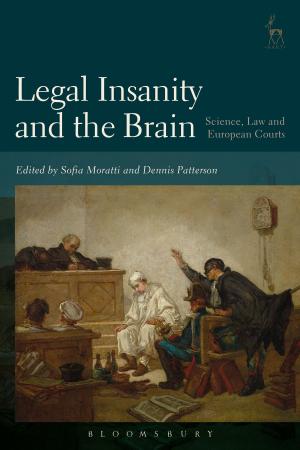Global Burnout
Nonfiction, Art & Architecture, Art Technique, Mixed-Media, Home & Garden, Crafts & Hobbies, Religion & Spirituality, Philosophy| Author: | Dr. Pascal Chabot | ISBN: | 9781501334399 |
| Publisher: | Bloomsbury Publishing | Publication: | February 8, 2018 |
| Imprint: | Bloomsbury Academic | Language: | English |
| Author: | Dr. Pascal Chabot |
| ISBN: | 9781501334399 |
| Publisher: | Bloomsbury Publishing |
| Publication: | February 8, 2018 |
| Imprint: | Bloomsbury Academic |
| Language: | English |
Available for the first time in English and freshly adapted as the acclaimed documentary Burning Out, Pascal Chabot's polemic treatise - Global Burnout - takes the phenomenon we call burnout as not just an individual problem that affects a few exhausted people, but rather 'a disease of civilization', connected to concepts of progress, technology, and desire, which are the hallmarks of this era of experimentation.
First analysing the archaeology of the concept, Chabot distinguishes three main types of burnout: the first, specific to professions who help others, appears to be the exhaustion of their humanism; the second, a trouble of adaptation and perfectionism; and the third, which is a consequence of the struggle for recognition. The philosophical implications of each of these three states is identified, allowing Chabot to buck the trend towards a negative, nearly fatalistic outlook, something not surprising considering the intrinsic gravity of the subject matter. An excellent story teller as well as an adequate elaborater of complex theories, Chabot's Global Burnout presents an introduction to the topic and therapy for the modern reader.
Available for the first time in English and freshly adapted as the acclaimed documentary Burning Out, Pascal Chabot's polemic treatise - Global Burnout - takes the phenomenon we call burnout as not just an individual problem that affects a few exhausted people, but rather 'a disease of civilization', connected to concepts of progress, technology, and desire, which are the hallmarks of this era of experimentation.
First analysing the archaeology of the concept, Chabot distinguishes three main types of burnout: the first, specific to professions who help others, appears to be the exhaustion of their humanism; the second, a trouble of adaptation and perfectionism; and the third, which is a consequence of the struggle for recognition. The philosophical implications of each of these three states is identified, allowing Chabot to buck the trend towards a negative, nearly fatalistic outlook, something not surprising considering the intrinsic gravity of the subject matter. An excellent story teller as well as an adequate elaborater of complex theories, Chabot's Global Burnout presents an introduction to the topic and therapy for the modern reader.















